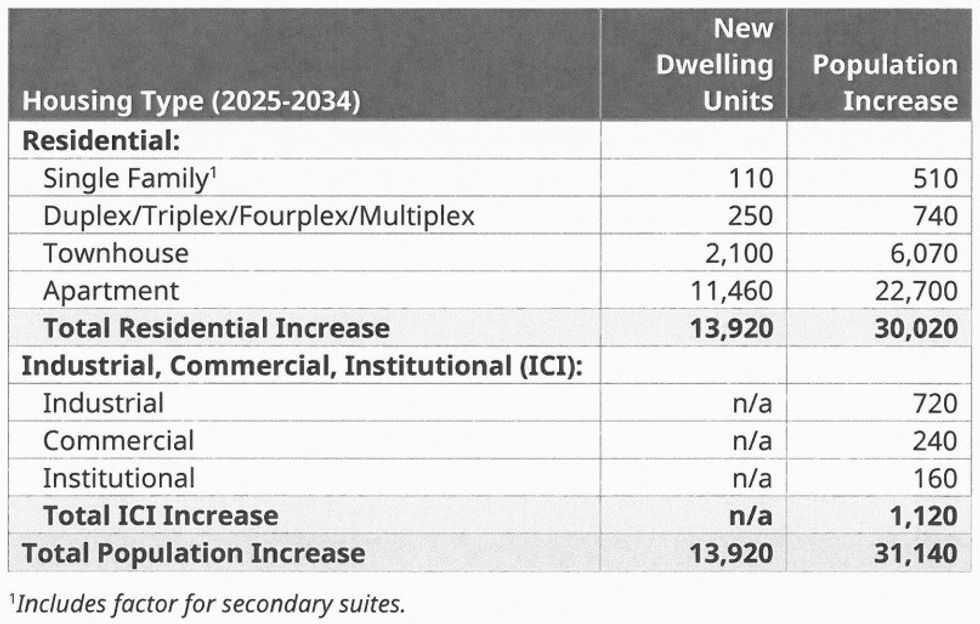If it was up to them, the City of Coquitlam would likely prefer to keep things the way they were, but it's not and the City is now set to introduce a new amenity cost charges (ACCs) program at a time when there is growing concern about government fees getting in the way of new housing being constructed.
The City is introducing the new fee program in response to Bill 46, the Housing Statutes (Development Financing) Amendment Act, which the Province brought forth in November 2023. The legislation revised how development cost charges (DCCs) can be used and was aimed at eliminating community amenity contributions (CACs), all of which are fees that governments collect in order to provide amenities for residents or pay for infrastructure needed to support growth.
"ACCs allow local governments to collect funds through development for growth-related amenities such as community centres, recreation or athletic facilities, libraries, childcare facilities, public squares or other amenities that provide social, cultural, heritage, recreational or environment benefits to a community," said the City in a recent council report. "In the absence of an ACC [program], the City would be reliant primarily on government grants and property taxes to fund new amenities."
Currently, these types of amenities are largely funded via the City's density bonus program and CACs program, but because of Bill 46, local governments have had to change their development financing frameworks and introduce ACCs.
Like those other government fees, ACCs will be charged either per unit or per sq. ft, depending on the type of development. The proposed rates are as follows:

Under this program, low-rise residential includes single-detached homes, townhouses, and multiplexes; mid-rise apartments are buildings up to 12 storeys, and high-rise apartments are buildings over 12 storeys. As mandated by Bill 46, ACCs cannot be levied on affordable housing required as part of municipal inclusionary zoning bylaws.
Under Bill 46, local governments can set rates by area, zones, uses, sizes, or units, but the City of Coquitlam is opting to set standard city-wide rates. Like the City's existing density bonus and CACs program, commercial developments are exempt under the new ACC program, so commercial development is not deterred.
The proposed rates were determined by factors such as growth projections for Coquitlam and the costs of capital projects the City believes it will need. According to the City, the proposed ACC program is based on a 10-year timeframe where capital projects total to $387 million, the population grows by approximately 31,000 people, and 13,920 new housing units are needed. The estimated splits of those totals are as follows:

Of the $387 million, $4 million (1%) would be provided by the City, $25 million (6.5%) would be funded by existing residents via property taxes, and $358 million (92.5%) would be funded by the ACC program. The large discrepancy between existing taxpayers and new construction is at the core of the debate over government development fees, with many governments taking the stance that "growth should pay for growth" and developers arguing that this is unfair because existing residents also benefit from new amenities and that the fees they collect increase the cost of new housing.
The City says that a core consideration of the program is to not deter new development and they believe their proposed rates are "not excessive." Very few municipalities have an approved ACCs program at the moment, but one that does is Burnaby, whose ACC program is higher for low-density residential, charged by unit for medium-density and high-density development, and applies to some commercial development.
This new proposed ACCs program is on the agenda for tonight's council meeting, with Council set to green light the public consultation process, which will include both the general public and the development industry (via the Urban Development Institute). Following public consultation, a formal bylaw will then be brought forward to Council for approval, with the goal being to implement the new program by June 30.
- Inside The City Of Coquitlam As Developers Rush To Get Permits Before DCC Hikes ›
- How Provincial Legislation Introduced Chaos To Coquitlam's Planning Department ›
- Anthem, Polygon, And Canderel Voice "Deep Concern" Over Burnaby's New ACCs ›
- Coquitlam Unveils Land Use Plan For Transit-Oriented Areas, Corridors ›




















